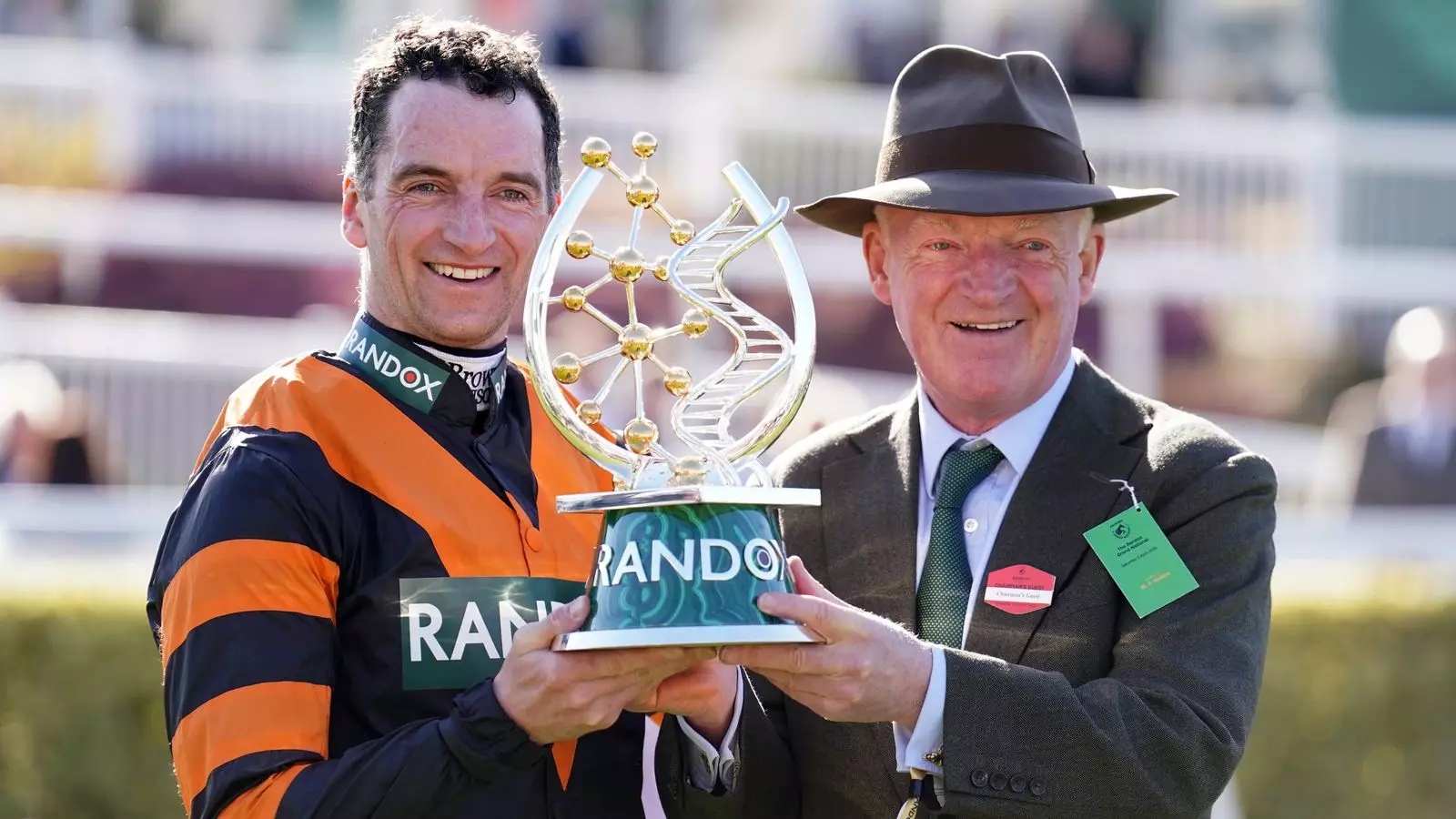The recently concluded Grand National illuminated not just a horse race but a familial legacy as Patrick Mullins rode Nick Rockett to victory, claiming the prestigious title at odds of 33/1. This unparalleled achievement did not merely bring glory to Patrick; it further solidified the prominence of his father, Willie Mullins, as a titan in the world of horse training. With a stunning 1-2-3 finish—Nick Rockett taking first, I Am Maximus securing second, and Grangeclare West completing the trio—the Mullins legacy is intertwined with the very essence of the Grand National.
The race showcased an impressive display of horse racing excellence in front of a raucous crowd of around 70,000 at Aintree, yet it also highlighted a stark reality of the sport—the adrenaline-fueled victory overshadowed the underlying risks inherent to horse racing. Despite significant advancements aimed at enhancing the safety of both riders and horses, the Grand National remains a venue marred by historical tragedies. While Willie Mullins celebrated his third National triumph, undercurrents of concern regarding rider and horse safety continued to echo through the festivities.
The Emotional Underpinnings
Patrick’s emotional recount of the race tapped into a well of sentiment common among those who adore the sport. The declaration that he had, “too good a start and was having to take him back all the way,” resonates with the struggles faced by athletes while also underlining the physical and psychological preparation required for such high-stakes competition. The narrative becomes richer upon realizing that this wasn’t simply another race; it was the culmination of lifelong dreams, nostalgic echoes of boyhood admiration for equestrian legends, and deep emotional stakes tied to family legacy.
The poignant tribute by Nick Rockett’s owner, Stewart Andrew, adds additional layers of complexity to the story. Andrew, having lost his wife Sadie just months prior, found bittersweet joy in this victory. His words, evoking the memory of Sadie watching the horse during his debut race, captured the juxtaposition of joy and sorrow that often colors competitive sports. While victories can uplift, they can equally serve as haunting reminders of what has been lost—a paradox that casts a shadow on celebrations.
Rethinking Safety in Horse Racing
In a sport often criticized for its merciless pace and perilous tracks, the Grand National has historically been deemed one of the most dangerous horse races globally. Every year, with the allure of victory comes a grim reality—survival is not guaranteed. Instances of falls and injuries have sparked debates about the ethics of horse racing, leading to calls for immediate reform. Last year’s introduction of safety measures, while commendable, begs the question: can anything truly render this beloved race without risk?
The drastic alterations—including a reduced number of entrants and modifications to various fences—attempt to balance thrill with safety but remain a source of contention. These changes may have eased some concerns, yet an inherent danger lingers at Aintree, where horses and riders are put to the ultimate test. The thrill that captivates hundreds of thousands comes at a cost, and discussing the ethics surrounding this spectacle is as crucial as the celebration of victories.
Cultural Significance of the Grand National
The Grand National transcends mere competition; it stands as a cultural icon in the UK. Spectators tune in for more than just the excitement of horse racing; they’re embracing a storied tradition steeped in history and nostalgia. The event captivates all, from seasoned gamblers to casual viewers, drawing a tapestry of engagement that glues the community together, albeit with a backdrop filled with ethical dilemmas and safety concerns.
In this annual extravaganza, racing becomes both a spectacle and a mirror reflecting societal values, anxieties, and the complexities of human-animal relationships. While the excitement reels audiences in, the darker realities underline the need for socio-political activism concerning animal welfare and safety in sports, a challenge that athletes, organizers, and fans must navigate together.
The Grand National will continue to be a battleground of emotions, legacies, and moral quandaries, showcasing the indomitable spirit of both man and beast while demanding a future more attuned to their well-being.


Leave a Reply